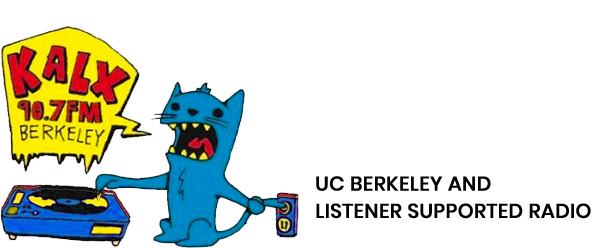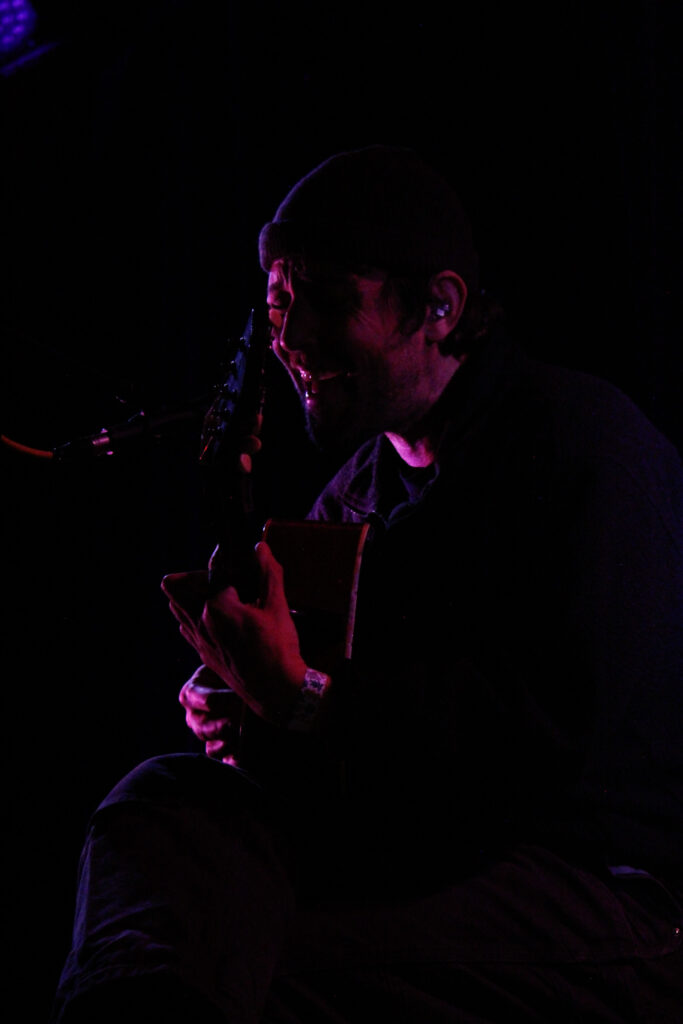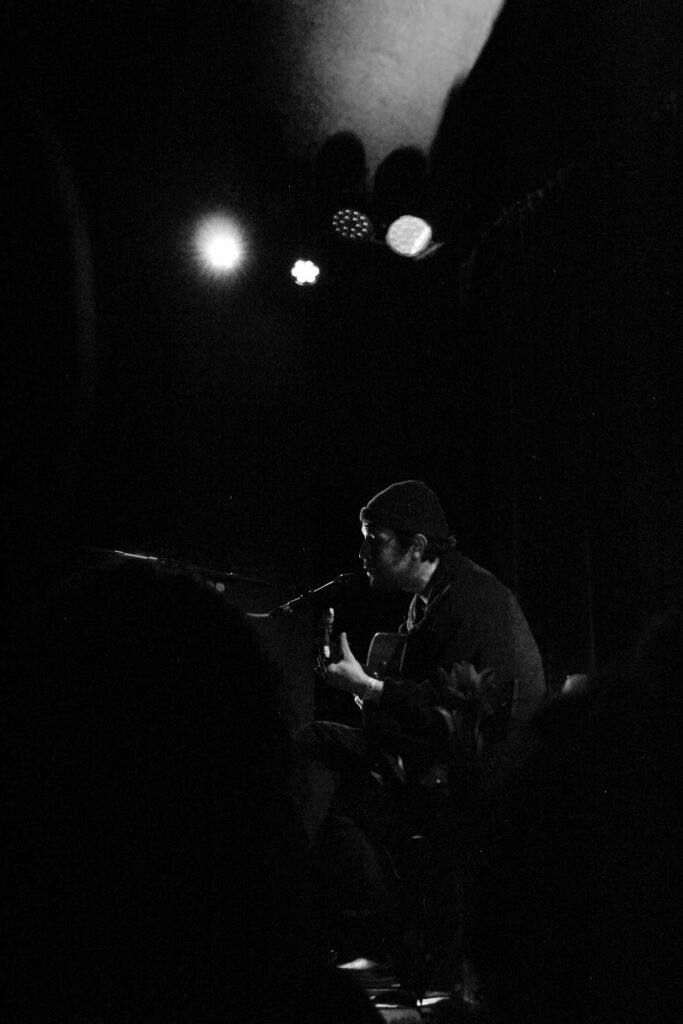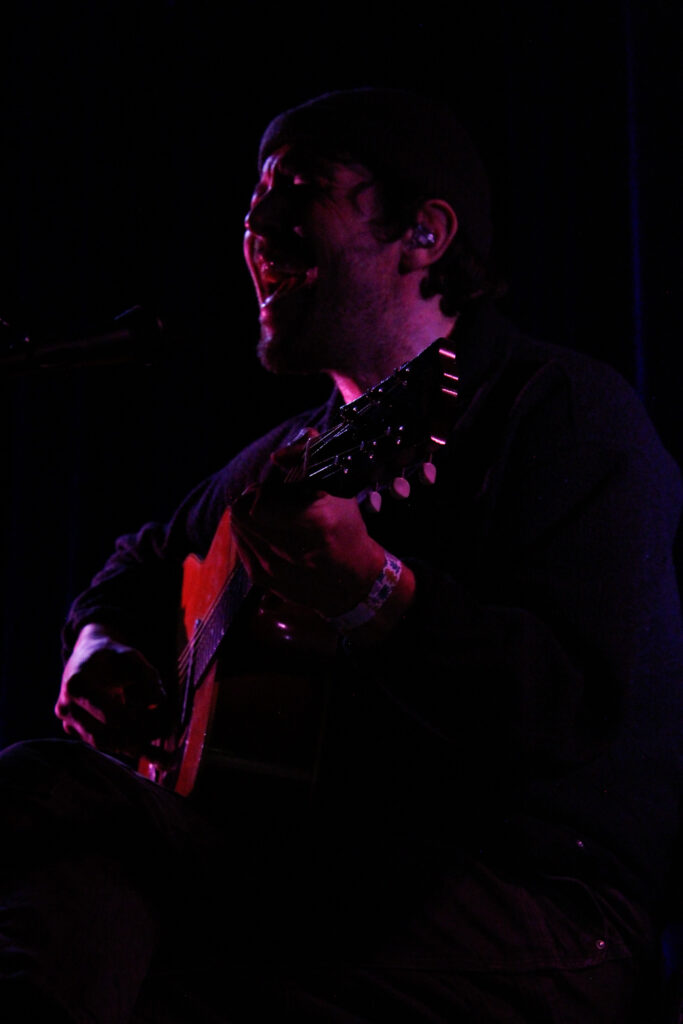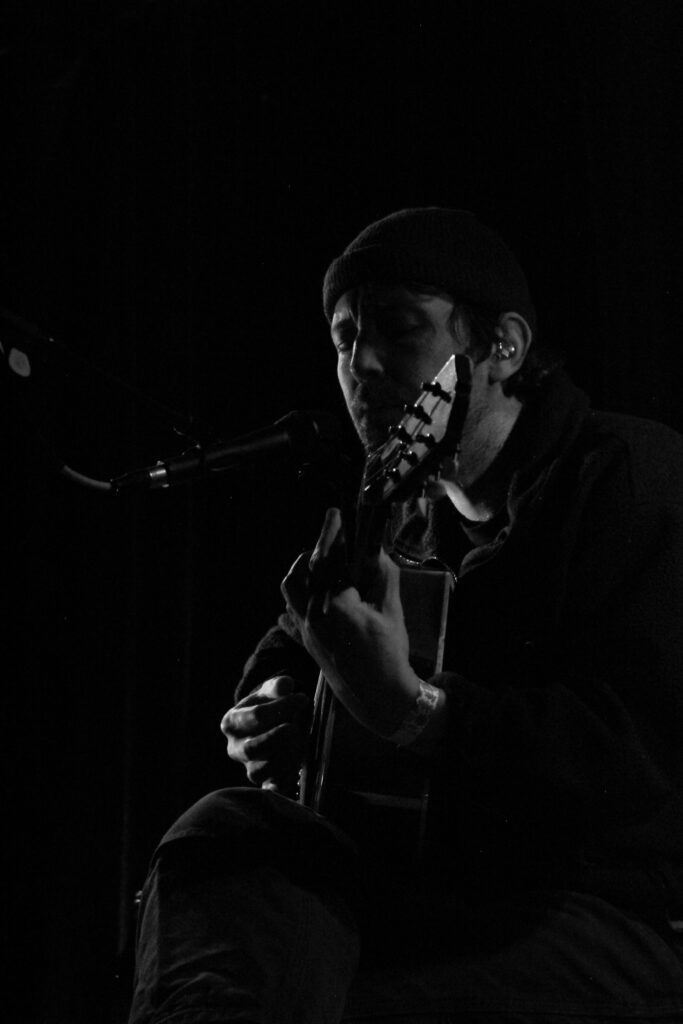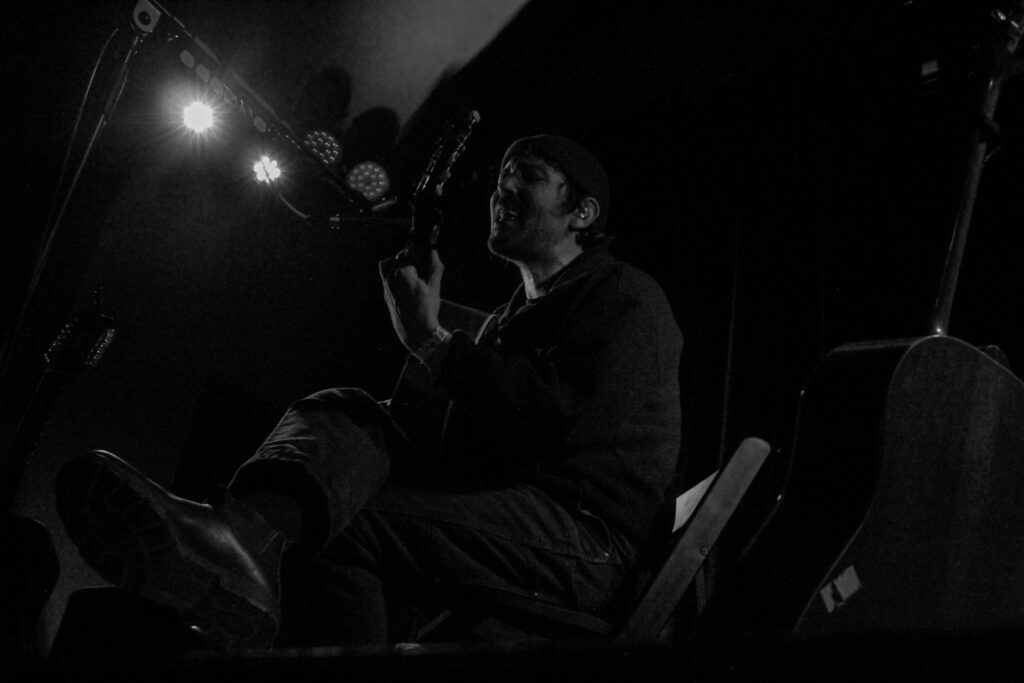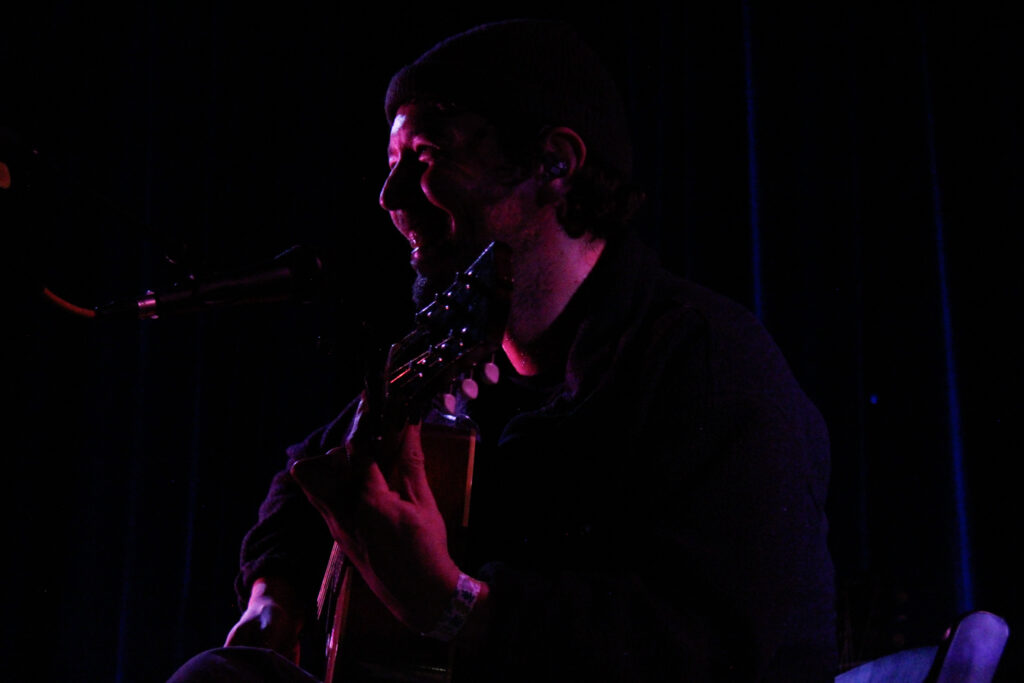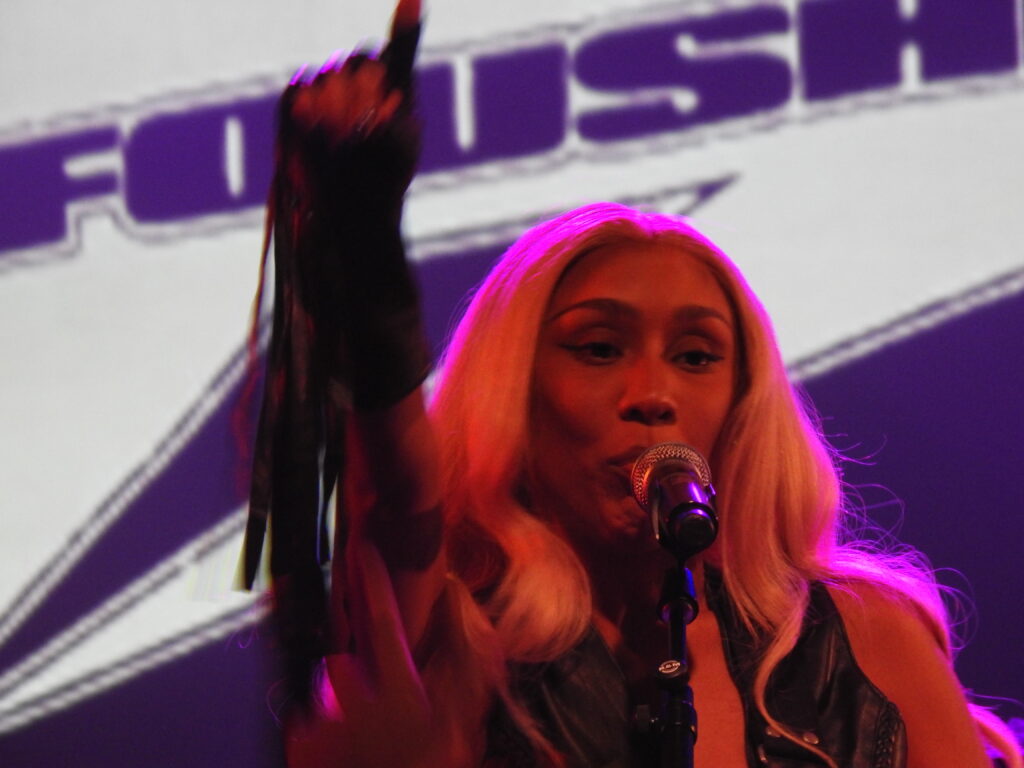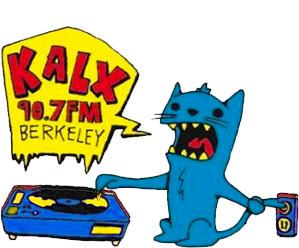This week on KALX Live! we present to you; Giveaway. Your hosts Desolation Girl and Ness continue the East Bay Emo Revival on Saturday, December 14th at 9pm.
Folk at Its Most Intimate and Sincere: Robin Pecknold at The Chapel
Robin Pecknold does not deal in charades of passion. On Wednesday night, under the dimly lit arch of The Chapel, San Francisco’s most beanied 30-year-olds convened to witness the singer-songwriter’s first appearance in the city on his solo tour. More popularly accompanied by his indie folk group Fleet Foxes, Pecknold’s set was entirely acoustic, intended to, as he expressed at the start of the show, intimately vivify some of the under-recognized portions of his discography that were previously often excluded from full-band setlists.
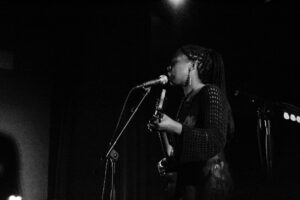
With this deep-cut guarantee, much of the audience was predictably die-hard, enthused with a devotional spirit befitting of the venue’s name. Floating about the standing room before the start of the show, the crowd’s preemptive adulation seemed somewhat overzealous without a worthy target. After a sweet and vaguely stirring set from opener Uwade, the energy was finally relieved of its aimless hovering when Pecknold took the stage. Flanked by a circular configuration of string and wood, he shifted into his seat alongside five acoustic guitars, thanked the audience, and proceeded to skewer all the room’s anticipation with a musical effluence deserving of the adoration.
Throughout the set, Pecknold delivered on his promise of deep cuts, excavating the margins of his oeuvre with careful, hunched-over diligence. Shuffling between the five guitars onstage, different tracks took on individualized tonalities. Some, like “I Should See Memphis” and “Kept Woman,” flooded the Chapel’s barn-like interior with a cool, fluid sonority. Others, like the standout second song “Sunblind,”—from the most recent Fleet Foxes record Shore—blushed with precious, brilliant texture. Constant throughout the set’s various movements was Pecknold’s tremendous vocal agility; despite the complex harmonies arranged for many of the original studio recordings, his isolated vocals were wholly sufficient, never rendering the songs bereft without a full-band accompaniment. In fact, Pecknold’s solo rendition of certain tracks, like “Sunblind,” exceeded their original excellence, cast with a new shade of intimacy when delivered by and only by the author himself. Characteristic of the folk tradition, each song had a sense of spontaneous cultivation, inviting familiar and unfamiliar ears alike to engage in the simple, passionate project of musical transmission.
The setlist streamed forth as an earnest reflection of whim, Pecknold’s original compositions organically mingled with his takes on other songs of similar folky flavor by artists like Joni Mitchell, Elliott Smith, and Judee Sill. Pecknold’s “Tiger Mountain Peasant Song” flowed seamlessly into a tender cover of Sill’s “Lopin’ Along Thru the Cosmos,” which he then followed with “Close My Eyes” by Arthur Russell, another of the night’s standout performances. If the audience was devoted to Pecknold, Pecknold was devoted to the sincerity of song, expressing both his own compositions and those of others with a commitment to their naked emotional content. Bookending the set with a cover of Elliott Smith’s “Pitseleh,” Pecknold concluded his soulful excursion as he did nearly all of the preceding songs: with a soft smile and a remark of authentic, hearty gratitude.
Review by Melody Caplan, photography by Aleeza Raveh
Pocket Full of Crumbs on KALX Live!
Fiat Lux Redux: Hey Mom, I’m an Influencer!
On the next Fiat Lux Redux, December 10th at 9am, California Magazine and the UC Berkeley Alumni Association’s podcast The Edge looks at the ever growing social media obsession of media influencers. To investigate whether it is a viable career choice, hosts Laura Smith, Leah Worthington, and Margie Cullen talk to a TikTok star about day-to-day routine, how she makes money, and the future of work in the era of social media.
Fiat Lux Redux presents previously aired lectures, conversations, and podcasts originating on the campus of UC Berkeley every other Tuesday from 9am to 9:30am. These often-lengthy original programs have been edited to a 30-minute format by experienced KALX producers. The show’s name, Latin for “Let there be light”, is a reference to the University of California’s motto, which is also Fiat Lux. The show’s goal is to provide listeners with a window into the intellectual and cultural life of UC Berkeley and to showcase the wide range of subjects and diversity of thought and ideas that are present at UC Berkeley.
If you have questions or comments about Fiat Lux Redux, contact Lisa Katovich at lisa.katovich@gmail.com.
Fousheé Pointy Heights Concert With a Special Surprise
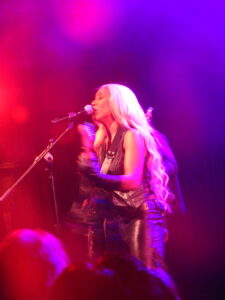 On Saturday, November 30th, I went to Fousheé’s concert in San Francisco at The Independent. From the moment I walked in, the vibes were on point. The theatre had an ambiance with nice overhead lighting and a bar with a wide range of cocktails. The crowd was a good size filling the whole room without being packed like sardines, with a lot of young people. Opening for Fousheé was DJ Hu Dat, who mixed without headphones completely off the cuff. She had the crowd bumping the whole time with a combo of reggae and some pop, which started the show off nicely.
On Saturday, November 30th, I went to Fousheé’s concert in San Francisco at The Independent. From the moment I walked in, the vibes were on point. The theatre had an ambiance with nice overhead lighting and a bar with a wide range of cocktails. The crowd was a good size filling the whole room without being packed like sardines, with a lot of young people. Opening for Fousheé was DJ Hu Dat, who mixed without headphones completely off the cuff. She had the crowd bumping the whole time with a combo of reggae and some pop, which started the show off nicely.
Soon after, Fousheé came onto the stage accompanied by her band. Wearing fringed leather gloves and knee-high boots, she was rocking with her guitar. She prefaced the show by reminding her audience that “This is my first solo tour.” Despite being new to the solo game, she killed it. Playing songs from her new album Pointy Heights opening with the reggae fusion track, “birds, bees.” Her whole set was very diverse in genre and sound, this kept the crowd on their toes, but always moving. She played some other tracks from her new album, notably “War” and “Flowers” which had the whole crowd singing along. Two or three times throughout the show, she would rush backstage and an interlude would play. These interludes gave some context into where she gets her inspiration. Her mother hailed from Jamaica, so reggae music has always been a big influence for her. She was also influenced by the punk rock movement. This became clear when she put down the guitar and sang “stupid bitch,” a song with very grungy guitar and angry lyrics. The whole crowd went crazy and Fousheé started crowd surfing. When they put her down, she started a mosh pit in the audience. The vibes were electric.This song hails from her 2022 album, softCORE, from which she played a couple other songs including “let u back in.”” All too soon, her set came to a close with her single “sing about love,” but the people were not done yet.
What happened next was truly special. The crowd roared and screamed for five straight minutes until she and her band got back up on stage for an encore. She asked an audience member in the front what song they wanted, so she played “candy grapes.” She was singing the song for about a minute when suddenly a guest jumped up on stage. It was Steve Lacy, who came out of the shadows and finished the song with her. The crowd went insane as he said “I wasn’t supposed to come out here tonight” and then swept Fousheé off stage with him as he left. This was a truly special treat for the audience. Fousheé said that this was her favorite show, and as an audience member, it sure felt like a pretty outstanding performance.
Review and photography by Braeden Wilcox
Concert Review: Rev Trio and Sikander at Couchdate
“We are the Rev Trio, thank you for having us. It’s gonna be a night of avant-garde swing, bebop, whatever you’re feeling.” I sit on an old carpet, writing on the menu atop a slab of some sort of oak. My eyes are at knee level. “Where the keys at?” A man in black Converse, gray straight-cut wool pants asks. My eyes pan up: black wool coat, strong hands, clasping metal can, grey hair poking out of an orange beanie, which reads ‘k’-something, but he doesn’t turn his head more this way for me to read the rest. He steps closer to see the pianist, hidden behind the bar of this triangular building.
The venue, Couchdate, has only been open for two months, but the owner, Emanuel, and his group of friends have been throwing pop-ups around the East Bay for years. The room is lit with glass orbs, each corner of a different primary color. We, on this carpet, are in the blue corner. A femme presenting person who wouldn’t consider themselves an astrologer but knows astrology sits next to me. Further down the table, two wine glasses sit half full, two faces turned towards the saxophonist and the band lead, Amadeo. The band: a saxophone, contrabass, and electronic keyboard are dwarfed by a wall of wine and vinyl. Burna Boy and Pharoh Sanders are a few pieces of album art I can make out from across the room.
“The next one is called ‘A Place Somewhere’ written by our pianist.” The saxophonist speaks into the mic. The music, a slow melody, shakes the place through two hi-fi speakers resting on the bar. This shake isn’t jarring but is akin to being rocked slowly through space, the listener able to explore each wave that forms each vibration that forms each chord. It’s different to hear jazz that isn’t the standards. Music that explores out into the unknown portions of our sonic universe. The next arrangement, “Strawberry Poptart,” brings a different emotion. The sax player leans low, his instrument between his jean covered knees, and allows the sax (or spirits) to take control, their story to fill the space.
What does it mean for us to hear, gathered here? The cellist and pianist make eye contact when they play. I wish I knew more about music theory, so I would have more to say, but as Noah Warren says about poetry, which may be appropriate in this context. “You don’t have to study poetry for it to hit, but if you study for a bit, it might hit differently.”
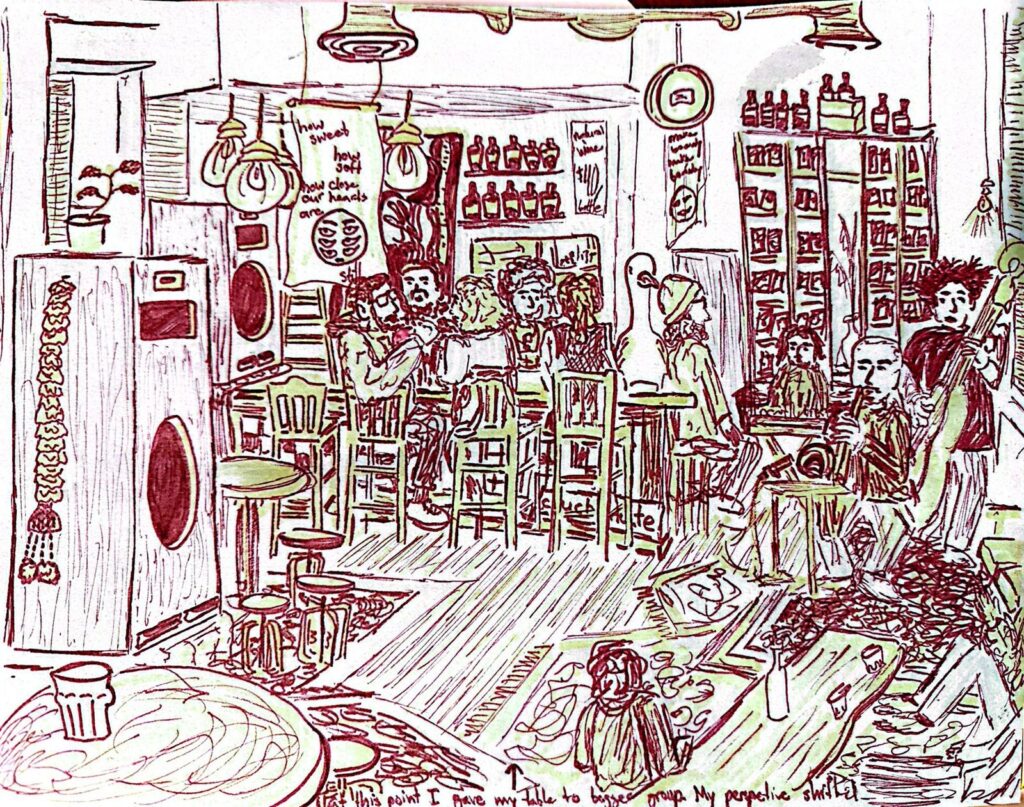
The second act was Sikander, a South Asian musician with roots in what is now Pakistan and Bangladesh. He plays popular works from Bollywood and Pakistan. He takes the stage in a long, printed silk shawl made by Rizwan Beyg, a well-known designer in Karachi, over a forest green kurta set made by his tailor back home in Karachi, Bari & Sons. In his hands, a beautiful spruce and maple violin handcrafted by the renowned Palestinian luthier Shehada Shalada.
He begins to play without saying a word. The crowd quiets when his violin starts to sing. “Hi, I’m Sikander from New York,” he says after his first song, “and this is my West Coast debut. I’ve never been to the Bay before, and you might be the most diverse crowd I’ve played for… This next one is a classic from probably our parents’ generation.”
He begins again on the violin. It’s a Bollywood song. “How many of you speak Hindi or Urdu?” he asks. A couple of claps from across the now full venue, most folks sitting cross-legged on the floor. In the silence, the sound of a woman’s lips slowly touching the cheek of her lover is perceptible behind me.
“Well, if you know this next one, sing along.” Bow on string, his arm moves in sweeping strokes, with gusto, with confidence. He gives this history of each piece as he plays. I feel like I’m at the orchestra, but a private house performance—like something back in the day only kings and the royal court would get to witness.
He has just started his next song, a ghazal from Faiz Ahmed Faiz, a revolutionary Marxist Pakistani poet, when I get a text. A friend from LA crashing on my couch tonight is outside my apartment, an hour away by bike. I must call it a night.
Review and art by Christopher LeBoa
